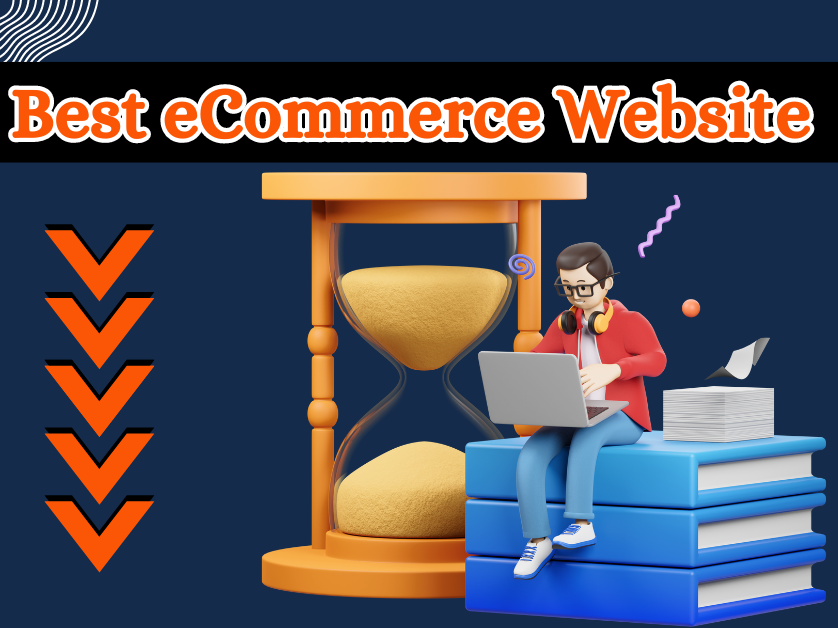Merchants looking to grow their online businesses need the best ecommerce platforms for building and running an efficient online store. These platforms offer robust software solutions for inventory management, seamless payment processing, and effective marketing strategies. With user-friendly interfaces and customizable design options, businesses can easily manage their retail tasks and create unique websites. As businesses evolve, these platforms play a crucial role in helping them adapt and thrive in the competitive online market.
Technology has revolutionized our daily lives, offering countless benefits such as improved communication, enhanced access to information, and greater convenience in everyday tasks. From smartphones connecting us with the world to AI systems optimizing work processes, technology’s impact is profound and multifaceted, greatly enriching our quality of life and efficiency.
There are many Best eCommerce websites building platforms that are mentioned below;
- Shopify
- Weebly
- Wix
- Adobe Commerce
- WooCommerce
Shopify
Shopify is a leading ecommerce platform known for its user-friendly interface and powerful features. Unlike traditional self-hosted software, Shopify allows merchants to easily set up and manage their online stores without worrying about technical complexities. With a focus on optimizing website design and providing a single back office for all retail activities, it simplifies the process of selling products to a global audience.
One of its standout features is the ability to handle all aspects of the selling process, from fast shipping to managing customers. Merchants can also expand their reach by integrating with popular social media platforms and trying out different sales models such as dropshipping. In essence, Shopify offers a complete overview of your ecommerce operations, making it an invaluable tool for those looking to thrive in the competitive world of online retail.
For entrepreneurs exploring a new business idea, Shopify offers a user-friendly platform as a solid starting point. With a straightforward checkout process, customizable store themes, and a manageable learning curve, Shopify empowers users to swiftly establish their online presence. The platform’s $1 per month plan for the first three months, along with a range of free trial options, allows individuals to test their selling potential without a significant upfront investment. The integrated dashboard and seamless synchronization of
orders between the online store and point-of-sale (POS) systems facilitate efficient order management. This comprehensive approach enables businesses to not only reach their target audience but also effectively serve customers through the vast reach of the internet, aiming for that crucial first sale within the initial three months.
Weebly
Weebly, a website builder based in San Francisco, is renowned for its user-friendly interface and easy setup. Since its inception in 2018, when it was purchased by Square, Inc., it has emerged as a formidable competitor in the ecommerce space. Particularly beneficial for small business owners with limited web development experience, Weebly stands out with its key features that set it apart from other platforms in the realm of ecommerce website building.
Pros:
- The website builder platform provides a simple, streamlined process for creating websites.
- With its drag and drop interface, it’s easy to use and highly customizable.
- The platform offers a variety of templates and built-in features, ensuring mobile responsiveness and SEO friendly designs.
- Additionally, it supports extension possibilities and third party integrations, including seamless payment gateway integration.
Cons:
- When signing up for Weebly or Square Online to create your website, ensure their ecommerce functionality suits your needs.
- Review their customer support options to address any concerns.
- Set up reliable backup and restore systems for your data.
- Be aware of the amount you need to pay for the services and regularly monitor your accounts for transparency.
Price:
29$ per month when paid annually
Wix
Create a free basic website effortlessly with Wix, a user-friendly drag-and-drop website builder offering a plethora of customizable templates. Enjoy complimentary web hosting and explore options for domain name registration. For those seeking advanced capabilities, consider an upgrade to a paid plan featuring enhanced functionalities, including powerful ecommerce features.
Merchants using Wix for ecommerce can effortlessly sell through multiple channels, enabling them to reach a broader audience. The platform provides built-in tools to efficiently manage orders and track orders, while also offering key inventory management features like low-stock alerts. Additionally, online payments are seamlessly integrated, and merchants can easily connect with third-party apps to enhance their selling capabilities. With Wix, product-based businesses can streamline operations and even sell through social media for increased visibility and sales.
Pros:
- Wix provides a fully hosted solution.
- Wix’s pros include the availability of a free basic plan.
Cons:
- The drawback of Wix is that tracking and analytics features necessitate a paid plan.
- Wix has a limitation as its sites are not transferable, which stands as a disadvantage.
- Wix has cons due to its lack of comprehensive inventory management features.
Price:
29$ per month when paid annually
Adobe Commerce

Developers can ensure flexibility and ease of maintenance with Adobe Commerce, a robust platform preferred by many brands. The non-hosted ecommerce platform allows for a bespoke website setup, giving developers the freedom to customize the site according to specific requirements. Unlike relying solely on an in-house developer, opting for Adobe Commerce provides a scalable solution for diverse business needs.
With Adobe Commerce’s out-of-the-box tools, achieving a seamless and effective multichannel strategy has never been easier. The platform provides an easy way to integrate social commerce and streamline marketplace selling, facilitating smooth international transactions.
Shopify has become a powerhouse for e-commerce, hosting thousands of stores. The platform’s seamless integrations and robust content management make it a go-to choice for businesses like Character.com. By moving their products to Shopify, Character.com not only streamlined their operations but also increased conversions by an impressive 40%. The platform effortlessly contained tons of products, making the previously exhausting task of managing inventory more efficient.
Pros:
- Adobe Commerce supports custom store designs.
Cons:
- The cons of Adobe Commerce include hosting not being included.
- The cons of Adobe Commerce involve the requirement of technical knowledge.
- Adobe Commerce has the cons of lacking out-of-the-box tools.
Price:
Custom Pricing only
WooCommerce

WooCommerce, an open-source and highly customizable WordPress plugin, is the best choice for merchants looking to establish online storefronts or integrate eCommerce into their websites and blogs. With its versatility, it supports various payment gateways and offers multichannel capabilities, making it one of the top options for those seeking a robust and user-friendly solution. Its built-in SEO features further enhance the visibility of products, ensuring a seamless and effective online shopping experience.
Pros:
- Boasts Woo Commerce the advantage of being both free to use and download, making it a compelling choice for businesses seeking cost-effective eCommerce solutions.
- WooCommerce features a sizable and expanding application and extensions store, adding to its appeal for businesses seeking versatile and scalable eCommerce solutions.
- WooCommerce offers a fully built-out integration with WordPress, providing seamless e-commerce functionality and numerous benefits.
Cons:
- Store owners are responsible for their own PCI compliance.
- WooCommerce’s dependency on the WordPress platform as a plugin constitutes a limitation.
Price:
3.95$ per month
Conclusion
In conclusion, the best eCommerce website building platforms provide a blend of user-friendly design, robust functionality, and scalable features to support growing businesses. From Shopify’s all-encompassing solution to Woo Commerce’s WordPress integration for customization, choosing the right platform is essential for success in the digital marketplace. My experience underscores the importance of selecting a platform that aligns with your business goals and audience needs, ultimately enhancing your online presence and sales potential.
FAQs
1- What website builder should I use for eCommerce?
Wix is a great choice for those looking to get started with an ecommerce website. Its easy-to-use drag-and-drop website builder allows you to create complete online stores. Wix also offers product categorization, discount promotions, payment processing, and customer reviews.
2- Can you create an ecommerce website for free?
While there aren’t many truly free e-commerce website builders, there are plenty with a free trial. There are also some platforms that will let you build as much as you need, then pay to launch. A free trial is ideal so you can launch your site and potentially sell enough to cover the cost of your first premium
3- Where can I sell my website for free?
MotionInvest is a website marketplace that allows anyone to sell and buy websites. The platform is free to use for both buyers and sellers, and there are no listing fees. MotionInvest also offers a free site valuation tool to help sellers determine the value of their websites
4- Is e-commerce cost effective?
Running an e-commerce store is a lot more cost-effective than running a physical store. You don’t have to rent commercial real estate — instead, you can pay an affordable fee for web hosting.
5- Which form of e-commerce is the largest?
B2B e-commerce is the largest type of e-commerce.







